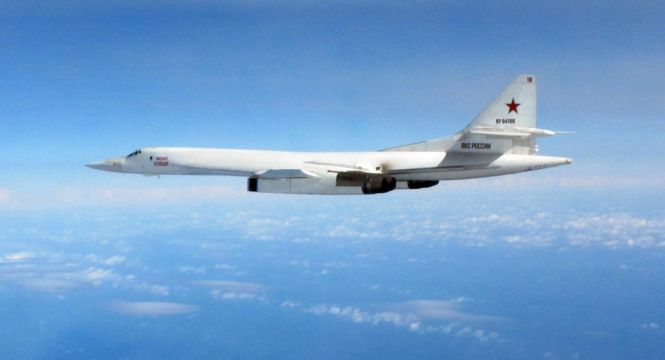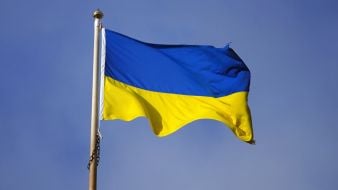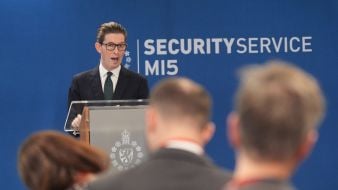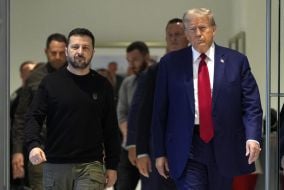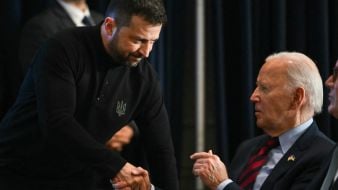Russian President Vladimir Putin put his nuclear forces on increased alert in an unprecedented escalation of tensions with the West.
Russia’s massive conventional military assault on Ukraine entered its fourth day with fighting in the streets of the country’s second-largest city, Kharkiv.
Here are the things to know about the Russian invasion of Ukraine and the security crisis in Europe:
– Russia puts nuclear forces on alert
In a shocking move that unearthed long-buried fears from the Cold War era, Mr Putin ordered Russian nuclear weapons prepared for increased readiness to launch on Sunday, ratcheting up tensions with Europe and the United States over the conflict.
The Russian president told his defence minister and the chief of the military’s general staff to put the nuclear deterrent forces in “special regime of combat duty”.
He said that leading Nato powers had made “aggressive statements” toward Russia in addition to stiff economic sanctions and cutting leading Russian banks from the Swift banking system.
Nato secretary-general Jens Stoltenberg told CNN that Mr Putin’s invocation of Russia’s nuclear arsenal was “dangerous rhetoric”.
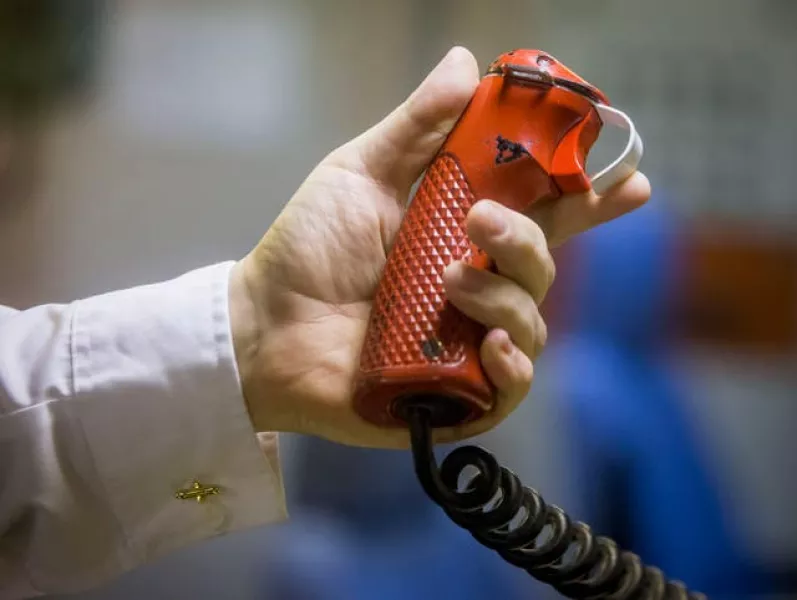
The practical meaning of Mr Putin’s order was not immediately clear.
Russia and the United States typically have land- and submarine-based nuclear forces on alert and prepared for combat at all times, but nuclear-capable bombers and other aircraft are not.
– Fighting spreads in Ukraine
Russian troops drew closer to Ukraine’s capital, Kyiv, a city of almost three million, and street fighting broke out in Ukraine’s second-largest city, Kharkiv.
Strategic ports in the country’s south were coming under pressure from attackers.
Ukrainian defenders put up stiff resistance that appeared to slow the invasion.

But a US official cautioned that far stronger Russian forces inevitably will learn and adapt their tactics as Russia’s assault goes on.
Only an occasional car appeared on a deserted main boulevard of Kyiv as a strict 39-hour curfew kept people off the streets until Monday morning.
Authorities warned that anyone venturing out without a pass would be considered a Russian saboteur.
Terrified residents instead hunkered down in homes, underground garages and subway stations in anticipation of a full-scale Russian assault.
“I wish I had never lived to see this,” said Faina Bystritska, 87, a Jewish survivor of the Second World War.
She said sirens blare almost constantly in her hometown, Chernihiv, which is about about 90 miles from Kyiv and under attack.
Ukrainians have volunteered en masse to defend their country, taking guns distributed by authorities and preparing firebombs.
Ukraine is also releasing prisoners with military experience who want to fight for the country, authorities said.
Pentagon officials said that Russian troops are being slowed by Ukrainian resistance, fuel shortages and other logistical problems, and that Ukraine’s air defence systems, while weakened, are still operating.
– Russia and Ukraine to hold talks
After rejecting Mr Putin’s offer to meet in the Belarusian city of Homel on the grounds that Belarus was helping the Russian assault, Ukrainian President Volodymyr Zelensky agreed to send a Ukrainian delegation to meet Russian counterparts at an unspecified time and location on the Belarusian border.
The announcement came hours after Russia announced that its delegation had flown to Belarus to await talks.

Ukrainian officials initially rejected the move, saying any talks should take place elsewhere.
Belarus has allowed Russia to use its territory as a staging ground for the invasion of Ukraine.
Mr Zelensky, who has refused to abandon the Ukrainian capital of Kyiv, named Warsaw, Bratislava, Istanbul, Budapest or Baku as alternative venues for talks, before accepting the Belarus border.
The Kremlin added later that Israeli prime minister Naftali Bennett had offered to help broker an end to fighting in a call with Mr Putin.
It did not say whether the Russian leader accepted.
– Many Ukrainians flee, some return to fight
Those fleeing Europe’s largest armed conflict since the Second World War grew to 368,000 Ukrainians, mostly women and children, the United Nations’ refugee agency said.
That figure more than doubles the agency’s estimate from the day before.
The line of vehicles at the Poland-Ukraine border stretched 8.7 miles long, and those fleeing had to endure long waits in freezing temperatures overnight.
Over 100,000 people have crossed into Poland alone, according to Polish officials.
An additional 66,000 refugees have entered Hungary, with more than 23,000 entering on Saturday alone, according to the Hungarian officials.

In the rush to escape the bombs and tanks, a trickle of brave men and women headed home to defend Ukraine.
At a border crossing in southern Poland, journalists spoke to people in a line heading against the tide.
They included 20 Ukrainian lorry drivers who worked in Europe and wanted to face combat.
– The world moves to punish Russia further
Following massive economic sanctions, the European Union moved to close its airspace to Russia’s airlines and fund supplies of weapons to Ukraine as well as target pro-Kremlin media outlets that are spreading disinformation about the invasion.
European Commission President Ursula von der Leyen said Sunday “we are shutting down the EU airspace for Russians.”
Just spoke to President @ZelenskyyUa who leads the determined resistance to the Russian invasion.
I explained to him the strong and immediate measures we are taking to support Ukraine’s defense, its economy & the refugees, as well as the new sanctions against Russia and Belarus. pic.twitter.com/5OEY0Ay7H7— Ursula von der Leyen (@vonderleyen) February 27, 2022
She also said the commission wants “for the first time ever” to finance the purchase and delivery of weapons to a third-party county under attack.
The foreign ministers of EU nations met and were expected to back the plan.
Japan joined the US and European nations in cutting top Russian banks off from the Swift international financial messaging system.
Japan will also send 100 million US dollars in emergency humanitarian aid to Ukraine.
And petroleum giant BP said Sunday it is cutting ties with Rosneft, a state-owned Russian oil and gas company.
That means BP exiting its stake in Rosneft and BP officials resigning positions on the Russian company’s board.
– Signs of deeper financial difficulties in Russia
There were some early signs that the initial economic damage to the Russian economy is significant, as Russia’s attack and retaliatory sanctions from much of the rest of the world stretched into their fourth day.
While official quotes for the Russian rouble were unchanged at roughly 84 roubles to the dollar on Sunday, one online Russian bank, Tinkoff, was giving an unofficial exchange rate of 163 rubles over the weekend.
Videos from Russia showed long lines of Russians trying to withdraw cash from ATMs, while the Russian Central Bank issued a statement calling for calm, in an effort to avoid bank runs. Reports also showed that Visa and Mastercard were no longer being accepted for those with international bank accounts.

Russia may have to close certain bank branches temporarily or declare a national bank holiday to protect its financial system, analysts said.
“If there’s a full-scale banking panic, that’s a driver of crisis in its own right,” said Adam Tooze, a professor of history at Columbia University and Director of the European Institute.
“A rush into dollars by the Russian general population moves things into an entirely new domain of financial warfare.”
– Germany announces significant military shift
A day after Germany, the EU’s economic motor, announced it would send military aid to Ukraine, German Chancellor Olaf Scholz said his government will increase its own defence spending to rearm.
This move showed how Russia’s invasion of Ukraine was challenging decades of European security and defence policies.
Mr Scholz’s pledge to dedicate 100 billion euros to a special fund for its armed forces would raise Germany’s defence spending above 2% of GDP, satisfying a longstanding request by Nato allies for Europe’s largest economy to do more for the continent’s security.

Germany announced that it would send 1,000 anti-tank weapons and 500 Stinger surface-to-air missiles to Ukraine.
Those weapons are in addition to the 400 German-made anti-tank weapons Germany also approved to be shipped from the Netherlands.
The US has also pledged an additional 350 million US dollars in military assistance to Ukraine, for anti-tank weapons, body armour, small arms and more.
– Russians against the war
Defying crackdowns by police, demonstrators marched in city centres from from Moscow to Siberia chanting “No to war!”
In St Petersburg, where several hundred gathered in the city centr, police in full riot gear were grabbing one protester after another and dragging some into police vans, even though the demonstration was peaceful.
Footage from Moscow showed police throwing several female protesters on the ground before dragging them away.

According to the OVD-Info rights group that tracks political arrests, by Sunday evening police detained at least 1,474 Russians in 45 cities over anti-war demonstrations that day, bringing the total detained in the last few days to over 5,000.
“I have two sons and I don’t want to give them to that bloody monster,” Dmitry Maltsev, 48, who joined the rally in St Petersburg, said.
“War is a tragedy for all of us.”
– Russia acknowledges casualties
The Russian military acknowledged that it has suffered casualties in Ukraine, without putting a number on them.
“There are dead and wounded among our comrades,” said Russian defence ministry spokesman Major General Igor Konashenkov.
Each side in the war has made claims about casualties and military damage inflicted on the other side but the numbers they have floated have not been verified.

Maj Gen Konashenkov’s statement was the first by Russian military officials to admit any troop losses of their own.
Ukraine acknowledged casualties early on.
Its estimates of how many have not been verified.
– United Nations to meet
The UN Security Council has voted to allow the 193-member General Assembly to hold an emergency session on the invasion.
It is to be held on Monday.
The vote on Sunday was 11 in favour of the session and Russia against it, with China, India and the United Arab Emirates abstaining.

There is no veto on a procedural vote, so it was approved.
The 11-1-3 vote was the same as on a resolution on Friday demanding that Moscow stop its attack.
But in that case, Russia used its veto and the resolution was defeated.
